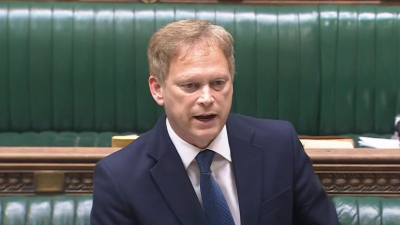Renowned wildlife advocate Chris Packham has taken a bold stance against corporate environmental negligence, announcing his refusal to consume Heineken products in light of the company's recent mass felling of apple trees. The devastation unfolded on vast stretches of land in Monmouthshire, near the England-Wales border, igniting outrage from conservationists and environmentalists alike. Packham condemned the decision as a "tragic waste of a fabulous resource," emphasizing the dire consequences in the face of a biodiversity crisis.
Reports surfaced detailing the ruthless clearance of thousands of apple trees spanning 300 acres at Penrhos Farm, owned by the beverage giant behind Bulmer's. Heineken justified the action, citing diminished cider demand and apple surplus. However, Packham, renowned for his role in nature documentaries like Springwatch, decried the move as "immoral" and "bordering on unethical" amid ongoing environmental challenges.
Expressing his disillusionment, Packham revealed his abstinence from traditional alcoholic beverages, opting instead for Heineken's alcohol-free offerings. He urged for accountability from corporations, urging consumers to support entities committed to preserving the planet and securing a sustainable future for generations to come.
Joining the chorus of condemnation, fellow broadcaster Iolo Williams rallied for a boycott of Heineken, condemning the "disgraceful" deforestation. He underscored the power of consumer action in holding corporations accountable, stressing the missed opportunity to address pressing issues like biodiversity loss, climate change, and public health.
Charles Watson, chair of River Action UK, echoed the sentiment, highlighting the critical role of trees and plants in bolstering ecosystems like the River Wye catchment. He emphasized the urgent need for preservation efforts to halt and reverse environmental degradation, underscoring the interconnectedness of nature's delicate balance.
The wanton destruction of vast swathes of natural biomass by Heineken has drawn sharp criticism from environmental advocates, who decry the prioritization of
In conclusion, Heineken's decision to fell thousands of apple trees at Penrhos Farm has ignited a fervent debate about the balance between corporate interests and environmental stewardship. While the company defends its actions as necessary for economic viability, critics argue that such short-term gains come at the expense of long-term ecological integrity. As the repercussions of this deforestation reverberate, it underscores the urgent need for a more conscientious approach to land management and resource utilization—one that prioritizes sustainability and biodiversity preservation for the benefit of present and future generations.







